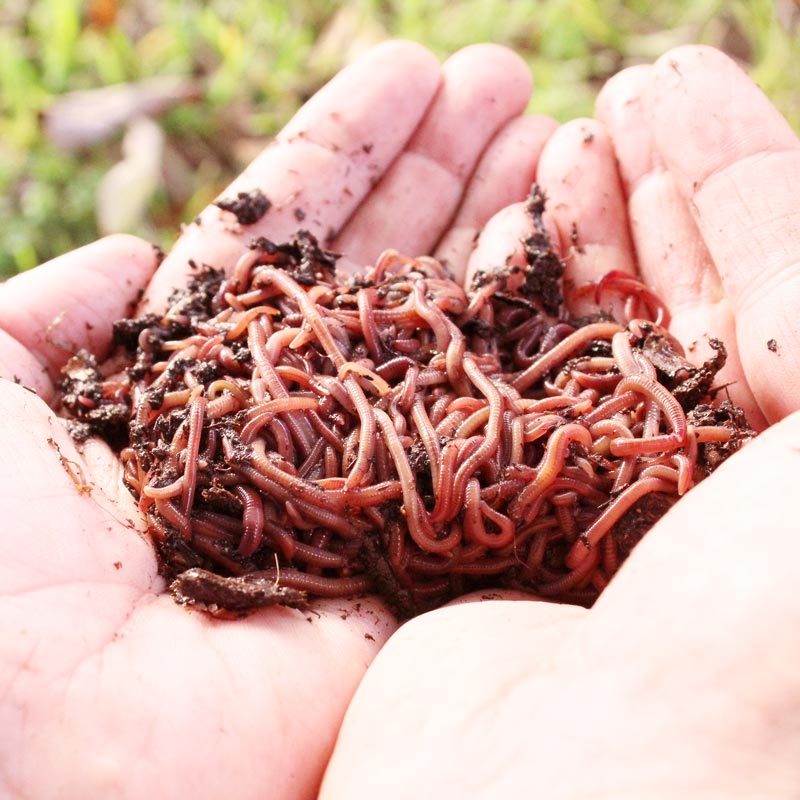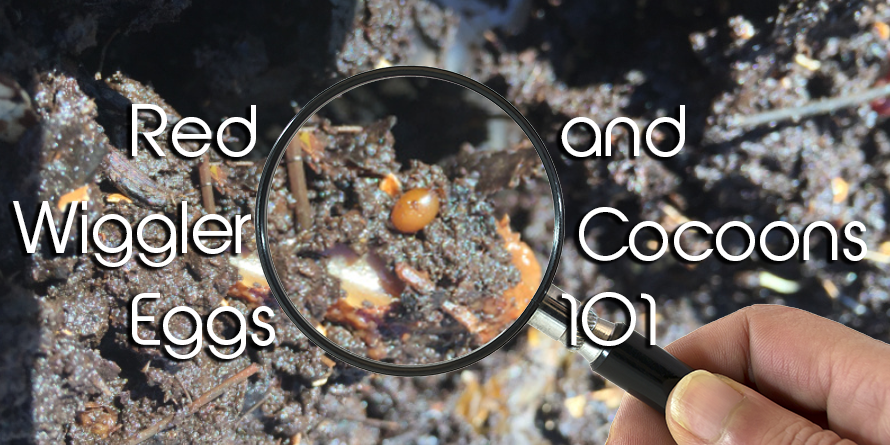Red Wiggler Express: Premium Bait for a Enjoyable Fishing Day
Red Wiggler Express: Premium Bait for a Enjoyable Fishing Day
Blog Article
Red Wigglers 101: Everything You Required to Know for Thriving Gardens
Red wigglers, or Eisenia fetida, play an important duty in lasting gardening methods, offering as efficient decomposers that transform organic waste right into useful vermicompost. Comprehending their habitat, nutritional preferences, and the myriad benefits they supply can change your gardening approach.
Understanding Red Wigglers

Red wigglers flourish in settings rich in natural material and dampness. Red Wiggler Express. They possess an one-of-a-kind digestion system that permits them to refine food scraps rapidly, secreting castings that are packed with vital nutrients such as nitrogen, phosphorus, and potassium. These castings improve dirt structure, improve water retention, and foster beneficial microbial activity, all of which add to robust plant health and wellness
Furthermore, red wigglers can make it through in varied problems, making them adaptable to various horticulture techniques, including indoor and exterior composting systems. Their ability to consume huge amounts of natural waste daily positions them as important allies for both home garden enthusiasts and business farmers. By incorporating red wigglers into gardening efforts, one can dramatically enhance dirt fertility and support lasting gardening practices.
Perfect Environment for Red Wigglers
Producing an optimum atmosphere for red wigglers is important for optimizing their composting capacities and overall health and wellness. Red wigglers prosper in damp, dark, and well-aerated habitats, which closely resemble their natural surroundings in leaf trash and decomposing natural issue. An ideal habitat needs to give a temperature level variety in between 55 ° F and 77 ° F(13 ° C to 25 ° C), as severe temperatures can stress or damage the worms.
The bed linen material, such as shredded paper, cardboard, or coconut coir, need to be maintained moist but not excessively damp, as too much moisture can result in anaerobic conditions harmful to worm health. In addition, a pH degree between 6.0 and 7.5 is optimal, making certain a well balanced setting.
Appropriate oygenation is equally crucial; it permits oxygen blood circulation and stops the buildup of unsafe gases. A container or bin developed for vermicomposting should have water drainage openings to eliminate excess dampness and promote air movement. Routine monitoring of these problems is vital for maintaining a prospering red wiggler population, ultimately improving their efficiency in damaging down organic waste and improving yard soil.
Dietary Needs and Preferences

Red wigglers display specific choices; they are particularly keen on softer, decomposing products over tougher or even more coarse substances. It is necessary to avoid feeding them citrus peels, onion, and garlic in large quantities, as these can be dangerous. Additionally, meat, dairy products, and oily foods need to be excluded, as they can draw in parasites and create undesirable smells.
(Charlotte NC Worms For Sale)To maintain ideal wellness, a balanced mix of green and brownish materials is suggested. Green products, such as veggie scraps, supply nitrogen, while brown products, like cardboard and dried out leaves, supply carbon. Keeping an eye on the moisture content and making certain a consistent food supply will additionally boost their growth and composting abilities. By accommodating their nutritional needs, gardeners can foster a prospering populace of red wigglers in their garden compost systems.
Advantages of Making Use Of Red Wigglers
The remarkable benefits of making use of red wigglers in horticulture expand much beyond their role in composting. These versatile microorganisms contribute considerably to soil health and wellness, improving nutrition availability and promoting microbial activity. By aerating the soil as they tunnel, red wigglers enhance drain and origin penetration, creating an optimum environment for plant growth.
Furthermore, red wigglers are effective recyclers of natural waste, transforming it into nutrient-rich spreadings that work as an exceptional all-natural fertilizer. These castings contain advantageous microbes and crucial nutrients, such as nitrogen, phosphorus, and potassium, which are important for plant development. The sluggish release of nutrients from worm spreadings guarantees a steady supply, decreasing the danger of nutrient leaching and advertising sustainable horticulture practices.
Additionally, the existence of red wigglers can assist suppress soil-borne plant illness. Their digestive system procedures generate compounds that inhibit unsafe pathogens, thus boosting plant wellness. Utilizing red wigglers cultivates a much more sustainable gardening strategy by decreasing dependence on chemical fertilizers and advertising a closed-loop system, where waste is transformed right into useful sources. Generally, including red wigglers into horticulture methods offers a multitude of eco-friendly and agricultural benefits.
(Red Wiggler Express)
Composting With Red Wigglers

To initiate an effective vermicomposting system, pick an appropriate container with proper air flow and drain. The optimal setting for red wigglers includes a damp, dark setting with temperatures in between 55 ° F and 77 ° F. Begin by layering shredded paper, cardboard, and food scraps, making sure a well balanced mix of carbon and nitrogen-rich products.
Red wigglers thrive on vegetable peels, fruit scraps, coffee grounds, and eggshells, while preventing meat, dairy products, and oily foods that can draw in parasites. Routinely keep an eye on wetness degrees; the bed linens should perspire yet not soaked. Harvest worm spreadings every couple of months by separating the worms from the compost, which can then be made use of directly in gardens or stored for later usage.
Executing vermicomposting not only minimizes land fill waste but likewise enhances yard dirt, advertising healthy plant growth and lasting gardening techniques. Accept this green approach to boost your gardening ventures.
Verdict
In recap, red wigglers are vital microorganisms for boosting yard efficiency next with effective composting. Their certain environment demands, nutritional choices, and considerable benefits contribute to sustainable gardening techniques. By using red wigglers, gardeners can significantly boost soil high quality and nutrient availability, cultivating much healthier plant growth. Welcoming the method of vermicomposting not just supports waste reduction yet also advertises an environmental equilibrium within garden communities, inevitably causing flourishing and resistant gardens.
Report this page